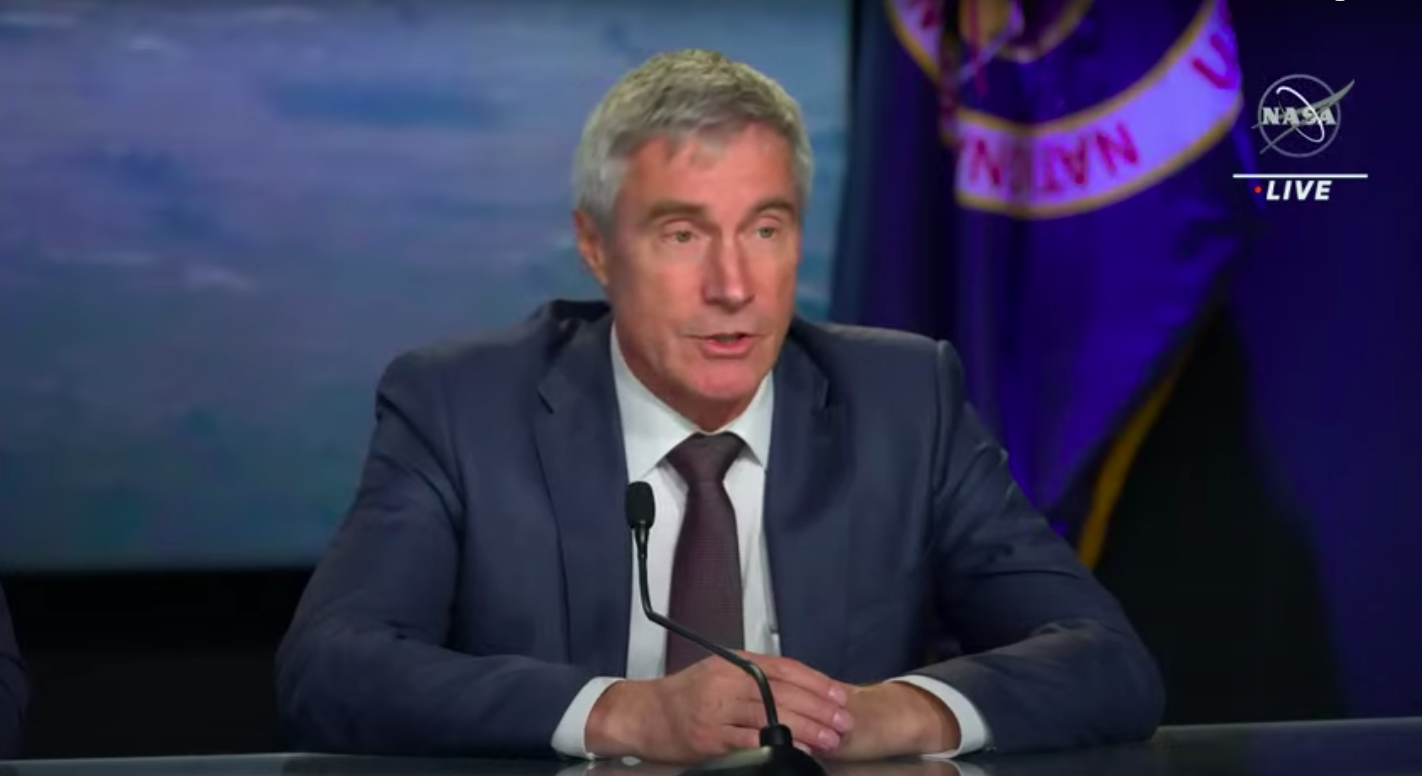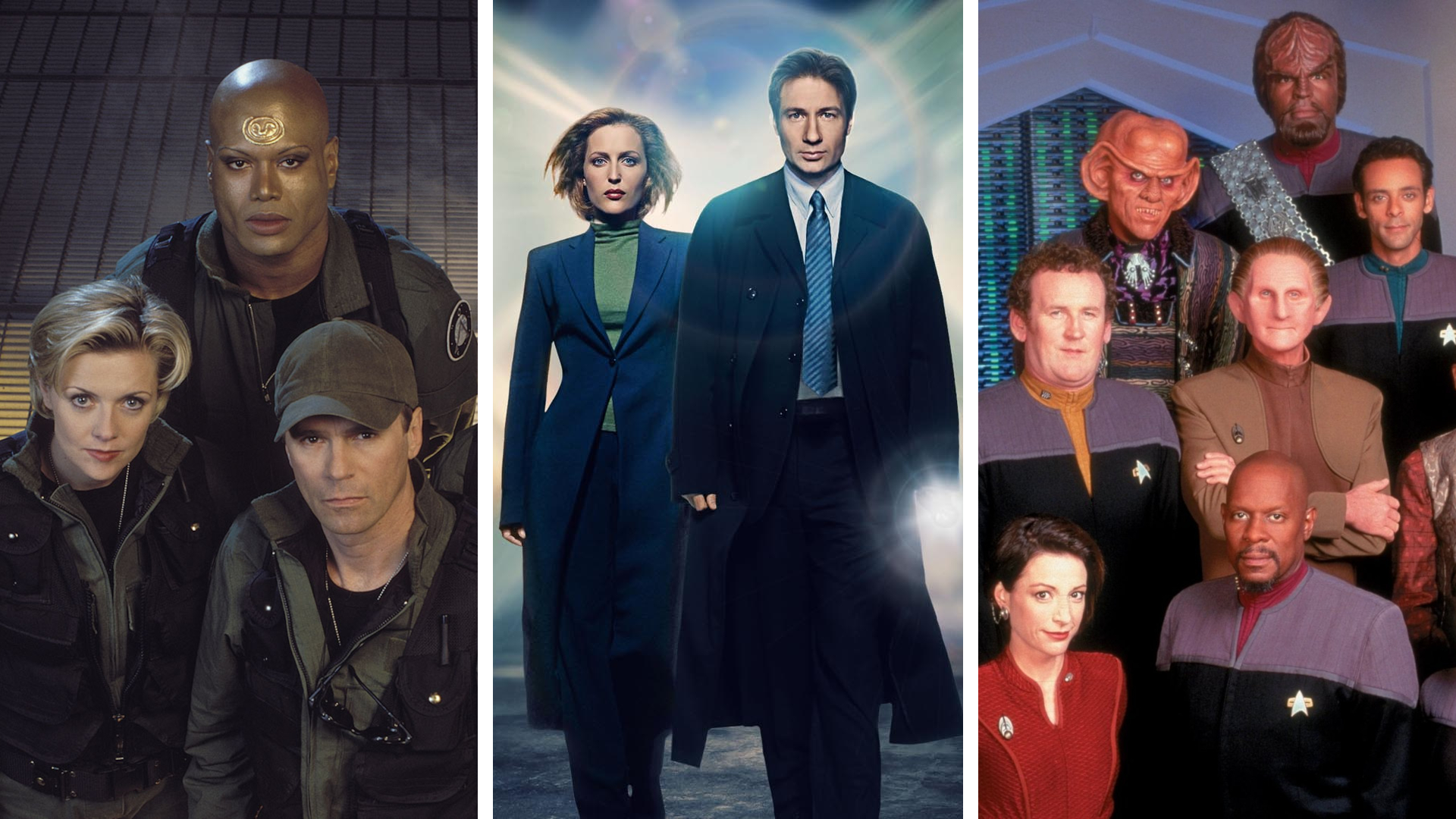Russian space officials jettison the bluster after Rogozin's departure

When Dmitry Rogozin left the Russian space agency Roscosmos this summer, he apparently took his famous bluster with him.
Rogozin headed Roscomos from 2018 until July 15 of this year, when he was replaced by Yuri Borisov. Rogozin's tenure was a controversial one, marked by a variety of combative statements and stunts that ramped up after Russia invaded Ukraine this past February.
For example, Rogozin threatened to pull out of the International Space Station (ISS) partnership unless the West dropped invasion-related economic sanctions against Russia. And in July, Roscosmos published photos of cosmonauts on the ISS holding up the flags of Ukrainian regions under occupation by Russian forces. This display drew criticism from both NASA and the European Space Agency (ESA), who decried it as an inappropriate politicization of the orbiting lab.
Related: Russia's invasion of Ukraine: Astronauts share their unique perspective
Borisov, who served as deputy prime minister of Russia before taking the reins at Roscosmos, has taken a more measured approach.
Borisov has reiterated Russia's desire to leave the ISS program, but he has stressed that this will happen "after 2024" as part of a highly regulated process. And the Roscosmos chief has said that an exit is unlikely before 2028, the earliest possible year that Russia's planned Earth-orbiting space station could get up running.
Former cosmonaut Sergei Krikalev, Roscosmos' executive director of human spaceflight programs, has also emphasized the importance of cooperation between the Russian space agency and its American counterpart.
Breaking space news, the latest updates on rocket launches, skywatching events and more!
That cooperation was on display Wednesday (Oct. 5) during the launch of SpaceX's Crew-5 astronaut mission for NASA. One of the four Crew-5 crewmates is cosmonaut Anna Kikina, who is flying to the ISS under a seat-swap agreement that NASA and Roscosmos announced in July.
The other seat in that initial swap deal was occupied by NASA astronaut Frank Rubio, who launched to the orbiting lab with two cosmonauts aboard a Russian Soyuz spacecraft on Sept. 21.
During a press conference Wednesday after the Crew-5 launch, Krikalev hailed the seat swap as a "new phase of our cooperation" and stressed that such cooperation has deep roots.
"I want to mention that we just continue what was started many years ago in 1975, when the Apollo-Soyuz crew worked together," he said, referring to the landmark Apollo-Soyuz Test Project mission. "And now we continue our cooperation."

This tone is quite different than the one Roscosmos evinced under Rogozin, as Washington Post reporter Christian Davenport noted during Wednesday's Crew-5 postlaunch briefing.
"It seems like you're both making a real effort to smooth over relations with NASA and to demonstrate that you're very committed to the partnership," Davenport said to Krikalev, referring to statements made recently by him and Borisov. "I wonder if it's part of a concerted effort to ease the tensions that arose under [Rogozin] and to turn down the temperature a bit."
Krikalev responded simply and concisely: "The answer is yes."
The ISS partnership is one of the few Russian space collaborations that hasn't splintered in the wake of the Ukraine invasion. Russian-built Soyuz rockets no longer fly out of Europe's Spaceport in South America, for example, and Russia doesn't sell rocket engines to American companies anymore. In addition, Russia is no longer part of the ExoMars rover project with ESA, which is now seeking a new partner on the life-hunting mission.
Mike Wall is the author of "Out There" (Grand Central Publishing, 2018; illustrated by Karl Tate), a book about the search for alien life. Follow him on Twitter @michaeldwall. Follow us on Twitter @Spacedotcom or on Facebook.

Michael Wall is a Senior Space Writer with Space.com and joined the team in 2010. He primarily covers exoplanets, spaceflight and military space, but has been known to dabble in the space art beat. His book about the search for alien life, "Out There," was published on Nov. 13, 2018. Before becoming a science writer, Michael worked as a herpetologist and wildlife biologist. He has a Ph.D. in evolutionary biology from the University of Sydney, Australia, a bachelor's degree from the University of Arizona, and a graduate certificate in science writing from the University of California, Santa Cruz. To find out what his latest project is, you can follow Michael on Twitter.
